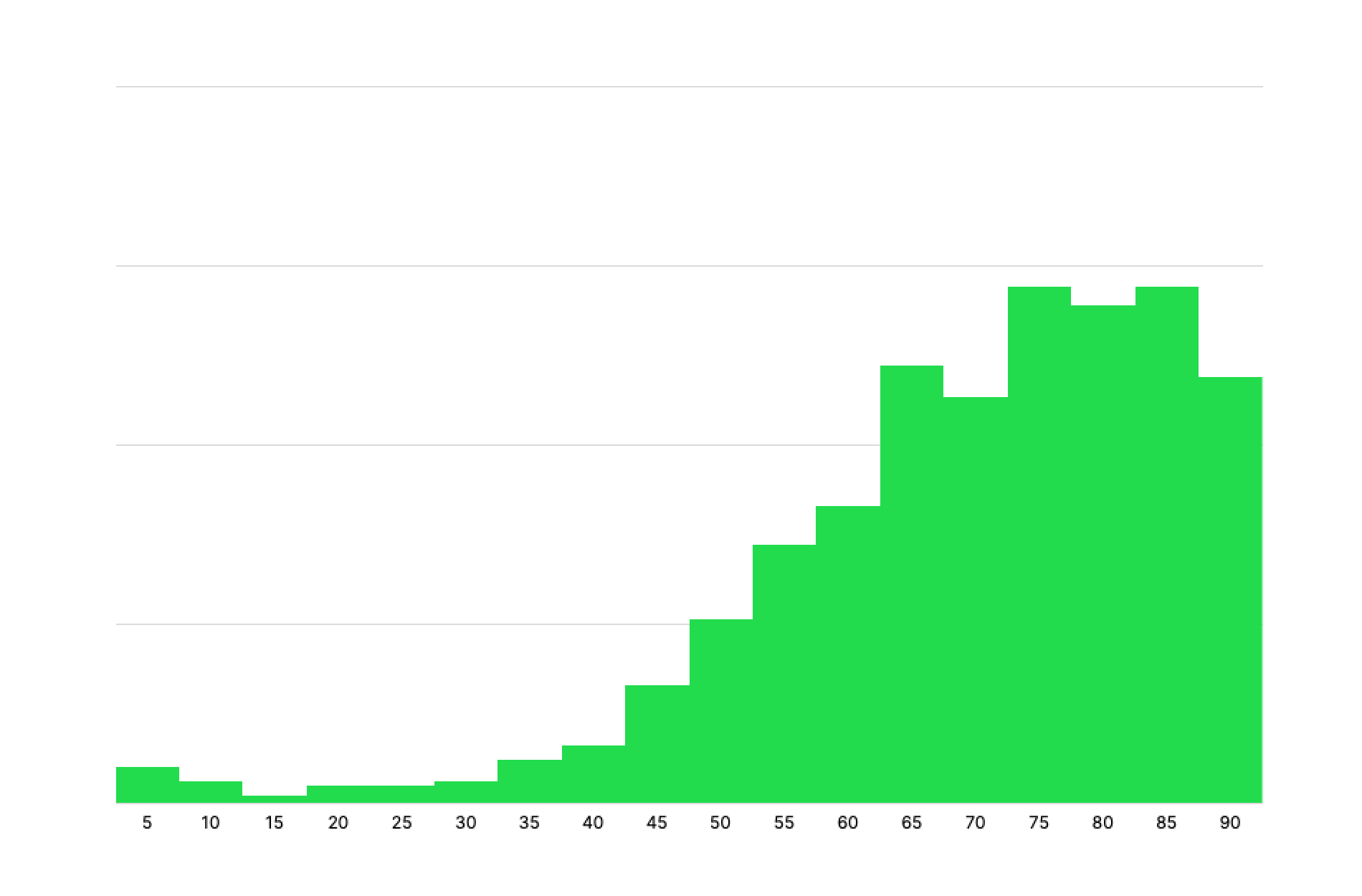Parents often ask, “How many minutes should my son or daughter expect to play in a game?” It’s a great question, and we have some answers.
Trace collects tons of youth soccer player data across all age groups and skill levels. One metric we track is minutes played. With tens of thousands of games, we have more than enough data to understand the average minutes played. Below is a chart with data from every 2004 girls team who Traced in the last 12 months. We’ll focus on the three groups outlined in the chart below, with a bit of an explanation on what minutes mean to players.
Minutes Played

Group A → About 40 minutes per game
Group A is the first large group of players that we see when moving left to right on the chart. At the 04 age group, 40 minutes is about half the game. What we see when we take a closer look at this age group, is that these players aren’t all starting the first or second half, so coaches are sequencing their playing time across the game, and getting their players a total that equals about half the game.
Group B → Between 55 and 65 minutes per game
Group B is the second bump. These are players who are playing ⅔ of the game. What’s interesting about these players is their stamina, many of them are showing signs of reduced performance (Stamina of 70 or below). What may be going on here is that the coach is seeing the player’s performance deteriorating, and pulling the player out for a substitution.
Ending Stamina for 55 through 65 minutes played

Group C → 80 minutes per game
The largest peak we see in the first graph are players who are playing the full game. And this makes sense. Playing the entire game means more than likely a player is one of the best on the team. They get the most consistent playing time, they’re more likely to show up and play more games as a result, and the cycle perpetuates.
Some players will thrive in a group, and shouldn’t strive to join another. It might make more sense to invest in becoming more dominant in their current group, rather than advancing to more playing minutes. It’s important to know what their skillset is and how that aligns with the minutes they play.




